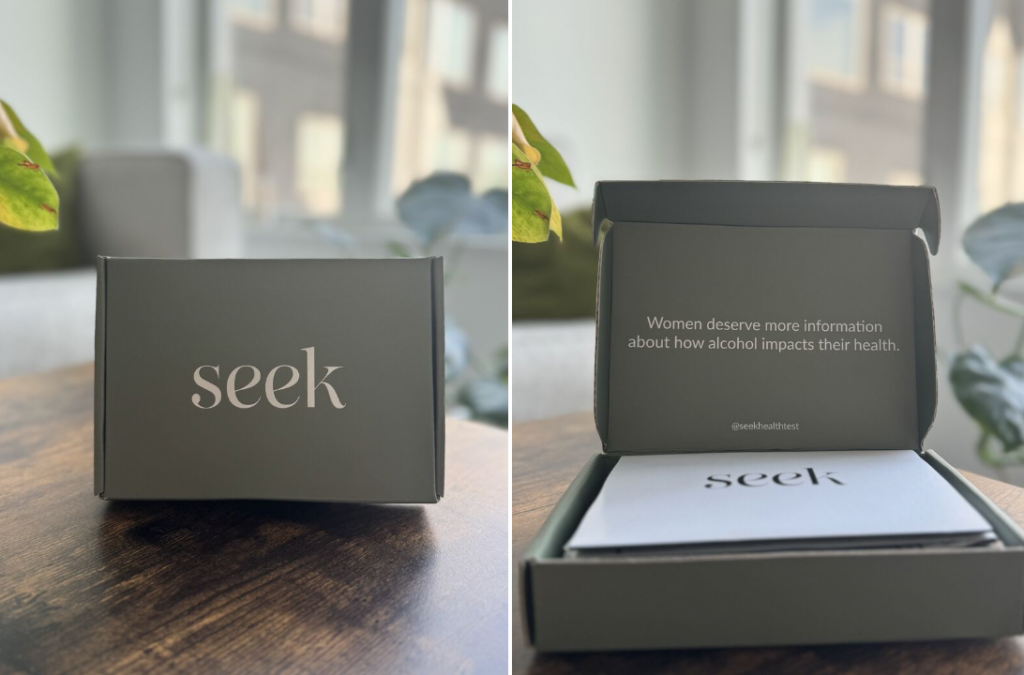
Healthtech startup Seek has launched the first at-home lab test specifically designed to measure the impact of alcohol on women’s health. Founder Katie Garry’s inspiration for Seek stemmed from personal experiences. Recognizing the lack of resources for women who want to continue drinking while taking care of their health, Seek aims to fill this void by offering a test that measures biomarkers across several health categories affected by alcohol, including heart, brain, gut microbiome, fertility, skin, and breast cancer risk. The test provides personalized recommendations and lifestyle modifications based on real-world datasets. Women can retest to track progress toward their health goals, such as reducing menopause-related night sweats or brain fog at work. The test was developed by clinicians from leading institutions like Penn, Rutgers, Mount Sinai, and UCLA Health.
In a recent interview, Katie Garry emphasized the importance of Seek’s role in providing comprehensive health insights for women who drink. She noted that while there are numerous fitness and health trackers for other consumables like sugar and processed foods, there is no singular resource for understanding how alcohol impacts women’s health. Women metabolize alcohol differently than men due to physiological differences, which makes them more susceptible to various health issues such as heart disease, liver disease, breast cancer, and mental health problems.
Garry explained that current healthcare practices typically involve a brief questionnaire at doctor’s visits, which may lead to further investigation only if the patient reports excessive drinking or related issues. For light to moderate drinkers, these screenings often do not provide the necessary information or follow-up. Many physicians, constrained by time and resources, might overlook the subtle yet significant impacts of alcohol on women’s health.
Seek’s comprehensive approach involves analyzing biomarkers sensitive to alcohol consumption and providing actionable insights. For example, inflammation markers can indicate improvements in brain health after reducing alcohol intake, offering tangible evidence of health benefits beyond just drinking less. “Our panel includes biomarkers that are the most sensitive to alcohol consumption, based on the most comprehensive dataset of alcohol and women’s health,” Garry said. This allows women to see measurable improvements in their health, reinforcing the benefits of making even small adjustments to their drinking habits.
Seek also provides detailed recommendations on drink choices and habits, considering factors like ingredients, potential for headaches, sleep disruptions and more. Garry highlighted that certain drinks could exacerbate issues like insomnia or brain fog, and that understanding these nuances can help women make better choices. “We get really specific on different drinks that for example have more carbohydrates versus ones that are higher in antioxidants,” she explained, showcasing the depth of personalized insights Seek offers.
In January 2024, Seek was accepted into Techstars. During the program, the team developed a production-ready version of their product, initiated a beta test with over 40 women, secured brand partnerships with female-founded companies featured in major retailers. Since its pre-launch on May 21, Seek has seen substantial interest and sales: The company reported growing $13,000 in sales within a few days, indicating interest in the market.
The shift in societal attitudes towards alcohol is evident with the rise of chic non-alcoholic aperitifs and the growing ‘sober curious’ movement. Seek is uniquely geared towards the millions of women who want to continue drinking but also want to prioritize their health.



